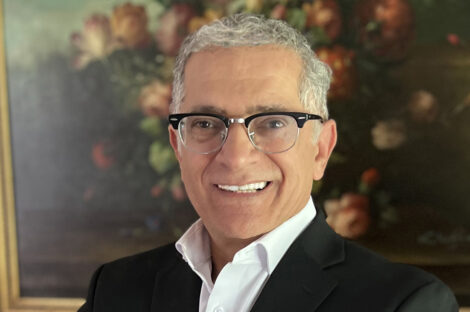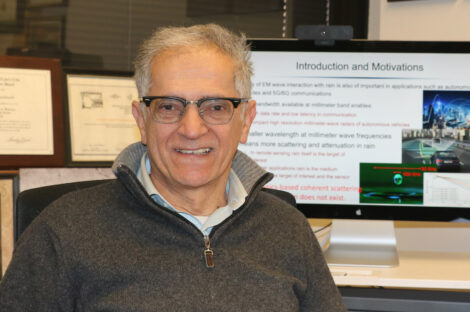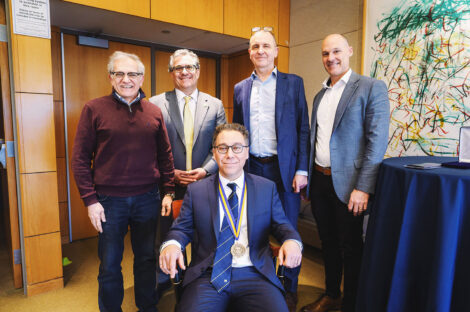Time-varying metamaterials
Professor Anthony Grbic is a key member of a new $7.5M Multidisciplinary University Research Initiative (MURI) to develop develop magnet-free, non-reciprocal metamaterials that can break the time reversal symmetry of conventional electromagnetic systems. The goal of the project is to develop more efficient and cost-effective ways to transmit and receive electromagnetic waves. It could lead to breakthroughs in areas such as next-generation wireless communication, commercial and military radar systems, imaging, and antenna systems.
Kamal Sarabandi: Faculty Profile
Kamal Sarabandi, Rufus S. Teesdale Professor of Engineering, conducts research in a wide range of topics in the area of applied electromagnetics, including: radar remote sensing; antenna miniaturization; reconfigurable antennas for, and performance assessment of, wireless applications; and radar imaging for collision avoidance, autonomous vehicle control, security, etc.
News
Kamal Sarabandi receives Ellis Island Medal of Honor
The national award recognizes the importance of immigrants and their descendents to U.S. economic and social vitality. Honorees are read annually into the Congressional Record.

Kamal Sarabandi’s leap of faith in Michigan
Prof. Sarabandi arrived in Ann Arbor as a first year graduate student 40 years ago on February 29, another leap year, and built a career that has earned him engineering’s highest honors.

Anthony Grbic named John L. Tishman Professor of Engineering
Grbic is a world leader in the development of metamaterials and metasurfaces, Watch his lecture.

 MENU
MENU 
